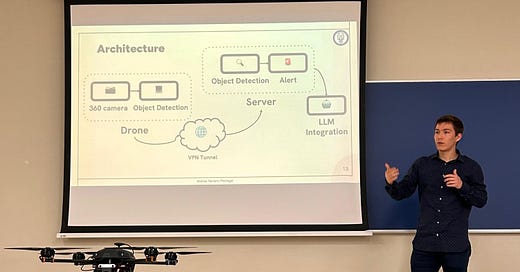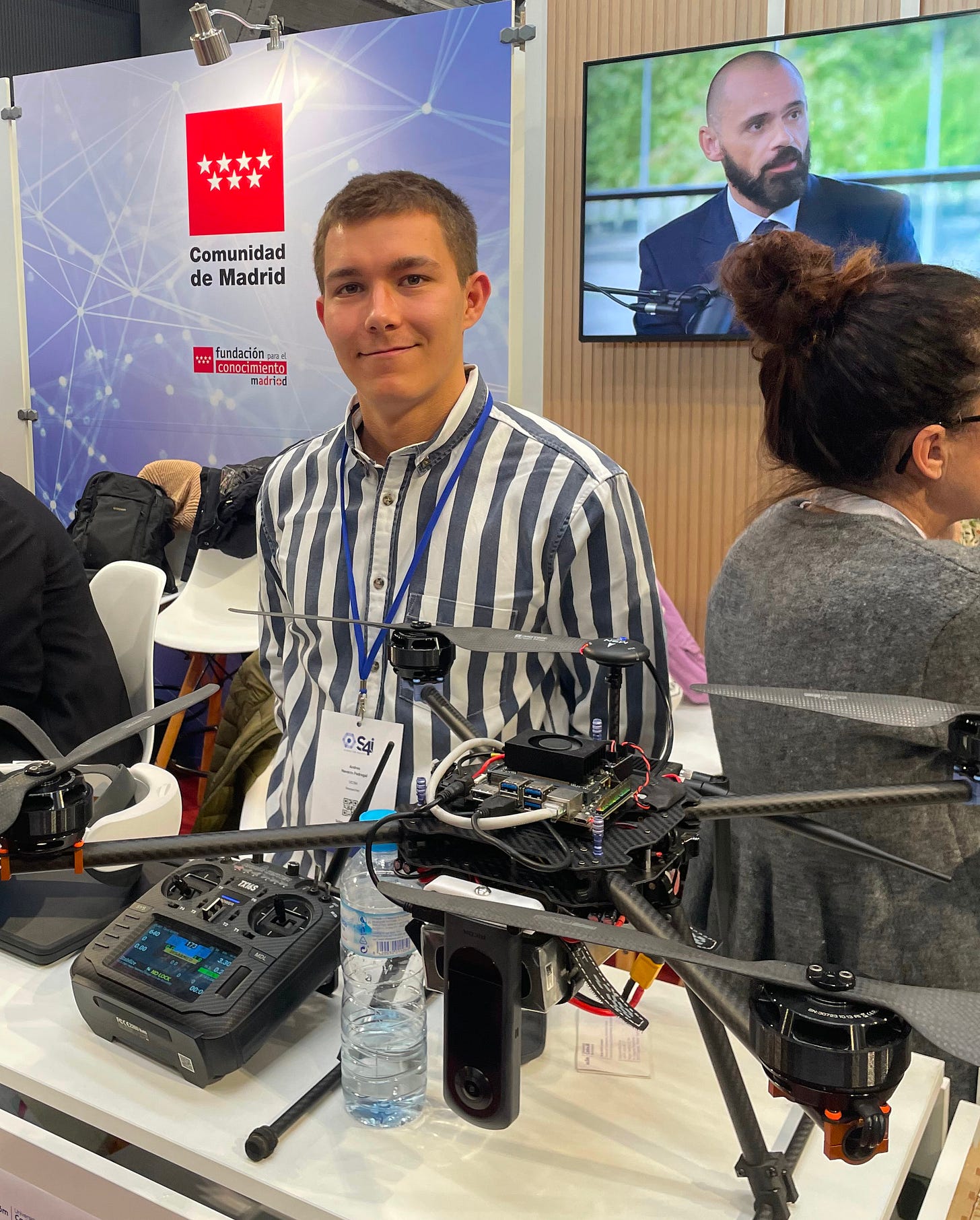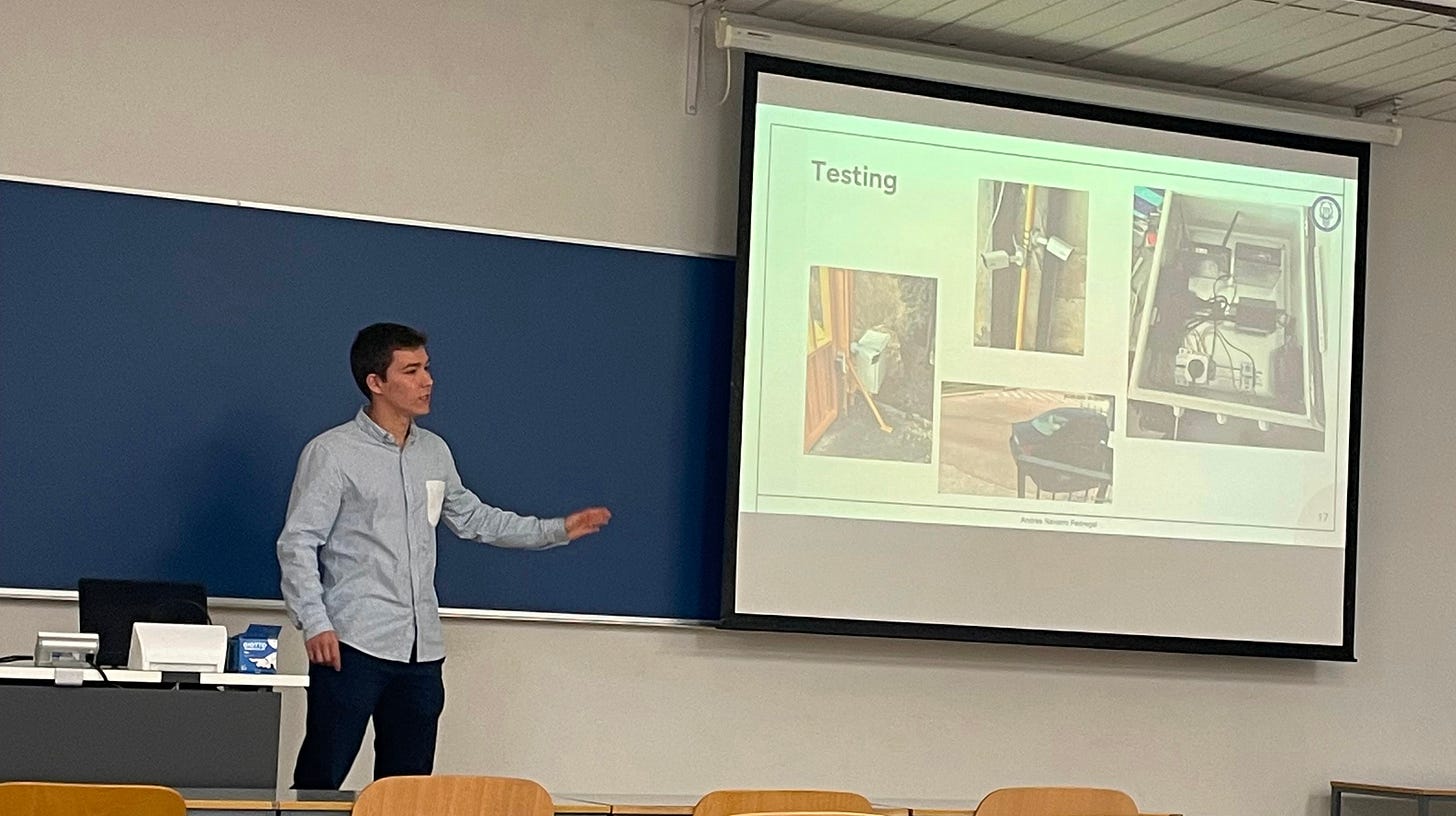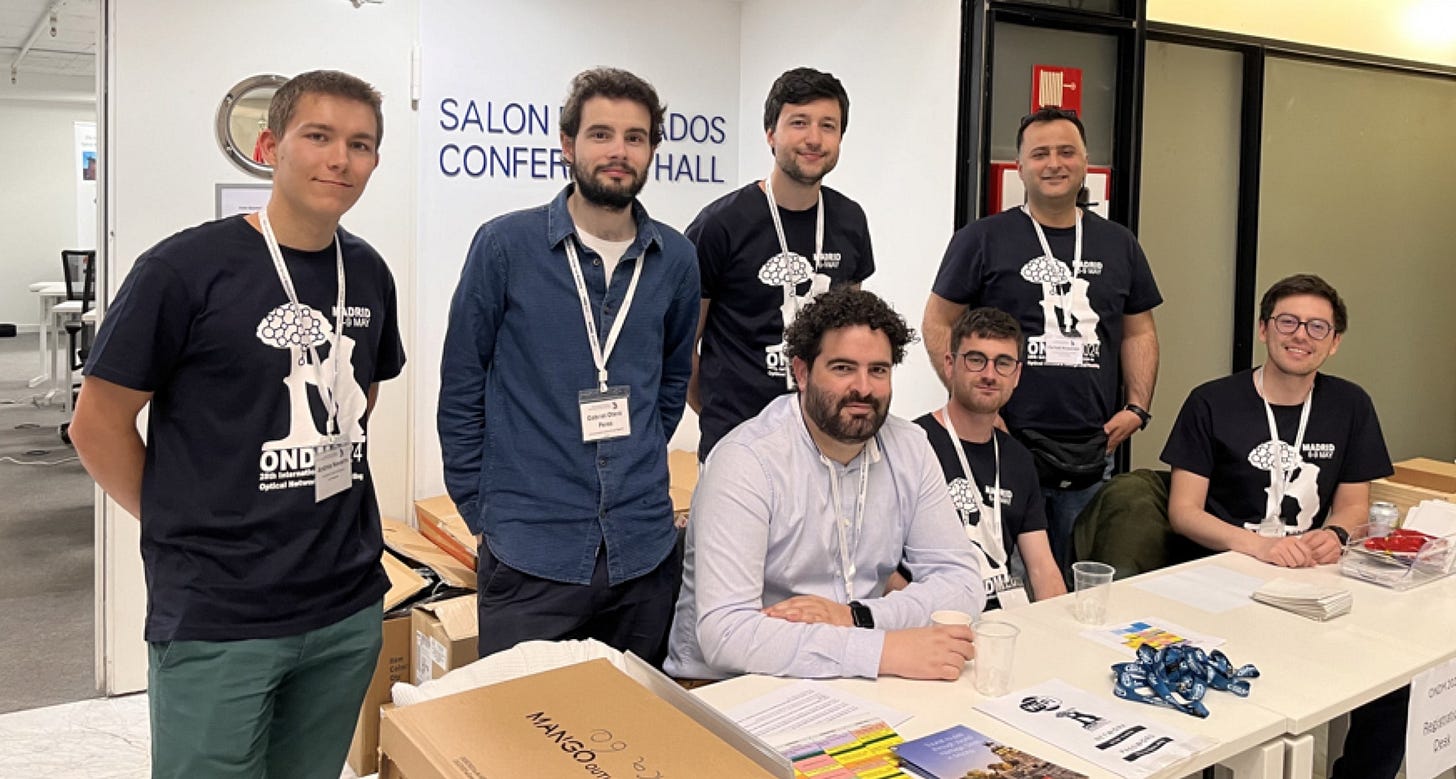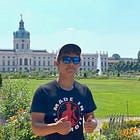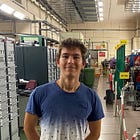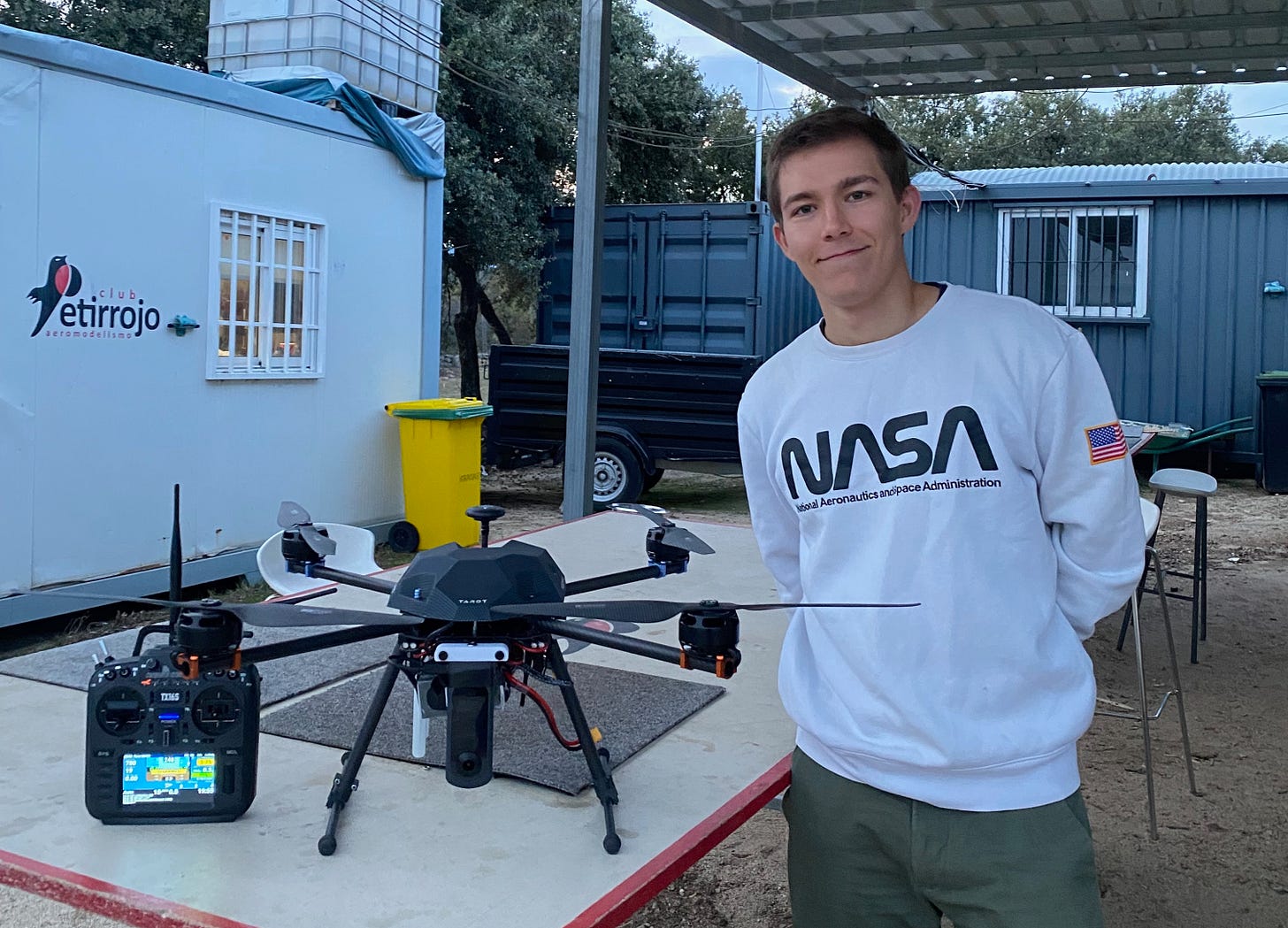My Journey Through Two Bachelor's Thesis Projects: Lessons and Achievements | #011
Last week marked a significant milestone in my academic journey. I defended my final thesis projects for my dual bachelor in data science and engineering and telecommunications engineering. I earned scores of 9.4 and 9.7 out of 10, with honors distinction recommendation!
I want to share what I learned about creating and defending these projects and the problems I faced.
What is a Final Thesis Project?
A final thesis project is a comprehensive assignment that comes at the end of a bachelor's degree. It allows you to apply everything you've learned throughout your studies to a research or practical project. Think of it as your opportunity to show what you can do with all that knowledge!
Since I pursued a dual bachelor's degree, I needed to complete two separate thesis projects—one for each degree.
My Data Science Thesis: Autonomous Drones for Rescue Operations
My first thesis, part of the Data Science and Engineering degree, focused on developing an autonomous drone system for human rescue missions.
The project involved building a drone from the ground up with an onboard NVIDIA Jetson computer to run machine learning algorithms to detect objects and people in real-time. When the drone spotted something important, it would send this information to a central server for further processing with LLMs. The server would then display the relevant information to the human operators managing the rescue mission.
What made this project particularly challenging was integrating multiple technologies: computer vision algorithms for detection, wireless communication protocols for data transmission, and a user-friendly interface for the operators. I had to optimize the machine learning models to run efficiently on Jetson's limited resources while maintaining accuracy in critical rescue situations. I also had to patch important libraries to allow live streaming from a 360 camera.
You can find more information about the project on my GitHub (https://github.com/andres-nav/bachelor-thesis-data-science-uc3m). Here is a little video of the drone taking off!
I'm grateful to my professor José Alberto Hernández, for his incredible support and this opportunity. This project is part of the 6G-Integration project.
My Telecommunications Thesis: Smart Parking Management System
For my Telecommunications Engineering thesis, I developed a system to automate parking lot management across multiple communities using a distributed IoT (Internet of Things) approach.
This project took over a year and a half to complete. It involved designing cloud architecture in AWS, creating servers, building APIs, developing websites and mobile apps, and integrating various technologies. The system helps communities better manage their parking resources with minimal human intervention.
The architecture included cameras installed at parking entrances and individual spaces, connected to edge computing devices that processed data locally to open gates and doors. The AWS infrastructure handled user authentication, relayed information, and provided the front end. I created web and mobile interfaces that allowed administrators to monitor usage in real-time and enabled residents to open the gates to the community automatically. The system also included inventory management and access control features, making it a complete end-to-end solution.
Currently, the project is deployed across six communities working non-stop and expanding!
You can find more information on GitHub (https://github.com/andres-nav/bachelor-thesis-telecommunications-uc3m). I also want to express my gratitude to Professor David Larrabeiti, for his guidance throughout this project.
Key Lessons From My Experience
While everyone's experience is different, here are some valuable insights I gained during my thesis journey:
Try to complete your thesis with a company or research group
Both of my thesis projects were connected to my work as a Research Assistant in the Telematics Department at my university. This gave me experience with real-world projects rather than purely academic exercises. Working while completing my thesis also helped me graduate from a dual bachelor's program in just 4.5 years (I'll share more about this in a future post).
Take initiative when defining your project's scope
Throughout my thesis work, I tried guiding my projects toward areas I found interesting (e.g. drones and cloud computing). This kept me motivated and made the projects more meaningful. Don't be afraid to suggest ideas or directions that excite you!
Focus on skills gained, not just finishing the thesis
The work works on you more than you work on it.
– Alex Hormozi
Rather than obsessing over immediate outcomes, value the experiences and skills you develop as those are what you are ultimately building. Moreover, despite earning honors in 12 different subjects and building a strong academic record, I've found that in industry, employers care more about your ability to solve real problems than your grades (aka, your skills).
For example, all the problems I faced during the telecommunications thesis project helped me land a job at Amazon, which has been a great opportunity.
Sometimes you don't immediately see how your work will benefit you, but the skills you gain always have value.
Write continuously throughout your project
I didn't do it and let me tell you that, it made it hard for me to write my thesis. I left all the writing until the final months, and I did not know what to write about. At CERN, I learned the importance of writing regularly throughout a project, but I didn't apply this lesson to my thesis work. This made the final writing process much more challenging than it needed to be.
Looking Forward
This marks the end of an incredible journey through my bachelor's degrees, during which I learned and grew tremendously.
In the coming weeks, I'll share another post about my overall experience with the dual bachelor's program. If you know anyone considering this path, stay tuned!
Bonus: LaTeX Templates Used
For both thesis projects, I used LaTeX to achieve a professional, publication-quality document. I created a set of templates available on GitHub (https://github.com/andres-nav/templates) for anyone to use.
Tip: I recommend you to check out the template for the CV especially…

